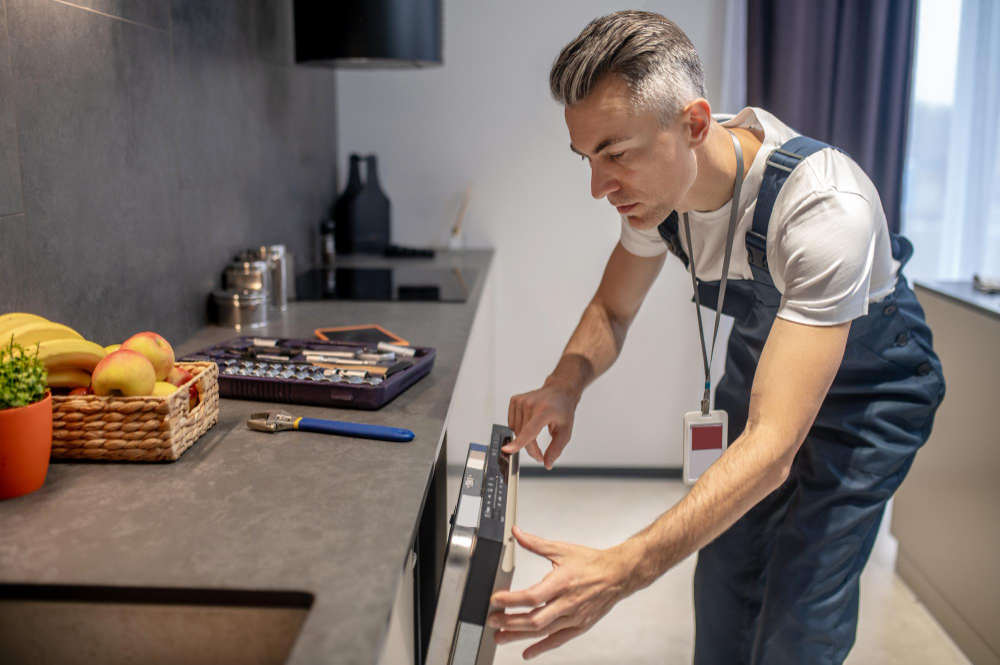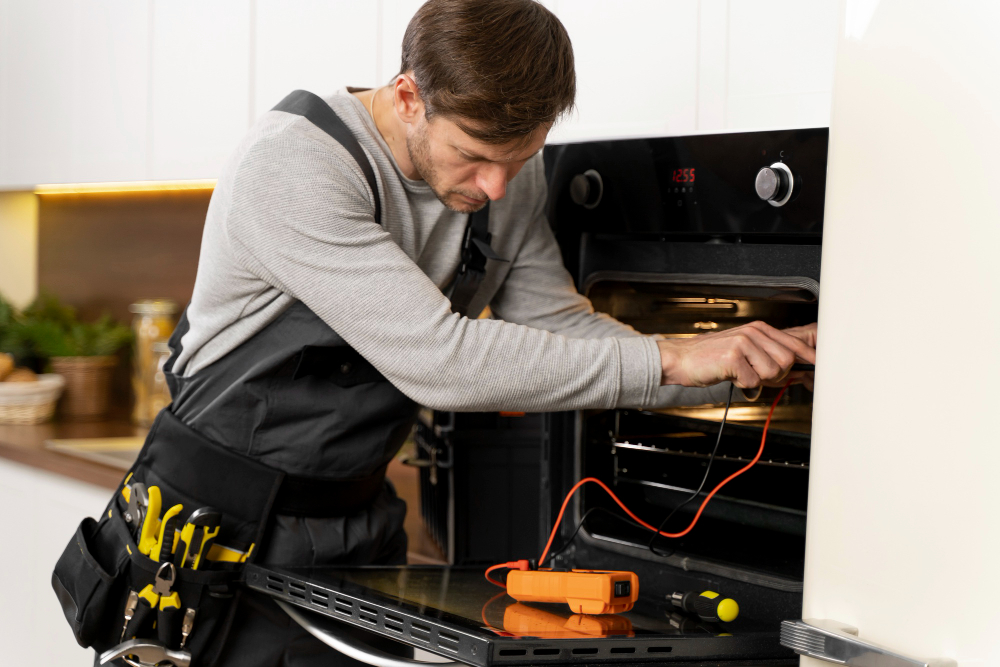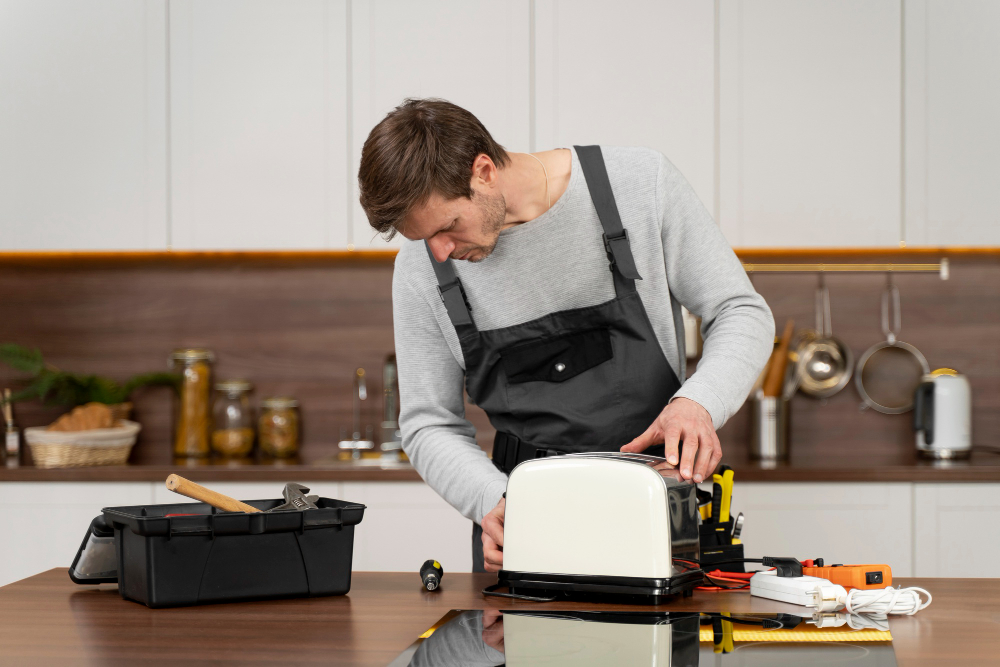Free Oven Maintenance and Cleaning Checklist
You’ve been neglecting your oven, haven’t you? Don’t worry, we’ve all been there. It’s time to dust off those crumbs and get your oven back to its shiny, efficient self.
This free oven maintenance and cleaning checklist will guide you through the process. You’ll be surprised how simple it can be.
So, roll up your sleeves and let’s get started!
Importance of Regular Oven Maintenance
Regular oven maintenance is crucial for performance and longevity. Lack of upkeep can dramatically reduce your oven’s lifespan over time. But don’t worry, you can enhance your oven’s lifespan through consistent, proper care. Proper maintenance not only increases efficiency but also ensures safety measures are in place. Neglected ovens can be a safety hazard, with risks of fire or harmful fumes. Therefore, it’s essential to regularly check and clean your oven, ensuring it’s free from grease and food debris. Safety should always be your priority. So, don’t just clean your oven for aesthetics, do it for its lifespan and your safety too.
Pre-cleaning Oven Preparation Steps

Before you dive into the actual cleaning, there are some crucial pre-cleaning oven preparation steps you’ll need to take to ensure the process is safe and effective. Pre cleaning safety should be your top priority. Begin by unplugging your oven or turning off the gas supply to avoid any potential accidents. It’s also important to let the oven cool completely if it has been used recently.
Material selection is equally crucial. You’ll need a good oven cleaner, rubber gloves to protect your hands, and an old toothbrush for scrubbing tight corners. Also, prepare a soft cloth or sponge for gentle cleaning and a trash bag for waste disposal.
Detailed Oven Cleaning Process
Once you’ve prepared your cleaning supplies, it’s time to get down to the real task: the detailed cleaning of your oven.
Chemical free cleaning isn’t just safer for your health, but also extends your oven lifespan.
Start by removing the racks and soaking them in hot soapy water.
While they’re soaking, create a paste of baking soda and water and apply this to the interior of your oven.
Let it sit overnight.
The next day, scrub off the paste with a damp cloth. You may need a plastic scraper for stubborn spots.
For the final touch, spray a mixture of vinegar and water to remove any baking soda residue.
Voila! You’ve just completed a detailed, chemical-free oven cleaning.
Tips for Maintaining Oven Efficiency
To keep your oven running smoothly, it’s crucial you pay attention to regular maintenance and efficiency tips. Ensure you’re implementing energy-saving measures like using the self-cleaning feature right after cooking, when the oven is already warm. This saves energy and also helps extend your oven’s lifespan.
Regularly check the door gasket for wear and tear. A faulty gasket leads to heat escaping, causing your oven to work harder and use more energy. Replace it promptly to maintain efficiency.
Using the right-sized pots and pans can also help. Smaller cookware on a large burner wastes heat.
Lastly, keeping your oven clean improves its efficiency. Food particles can absorb heat, making your oven work harder. So, stick to a regular cleaning schedule.
Recognizing Common Oven Issues
In the course of using your oven, you’ll likely encounter a few common issues that need addressing. Recognizing signs of oven malfunction early on can save you time and money. A handy oven troubleshooting guide can be your best friend in these situations.
Does your oven not heat up, or does it heat inconsistently? Perhaps it’s not coming on at all, or it’s making unusual noises. These are all signs that something’s not right. If your oven door won’t shut properly, or if it’s tripping the electrics, you’re definitely dealing with a malfunction.

Frequently Asked Questions
What Kind of Cleaning Products Are Safe to Use on the Interior of My Oven?
You can safely use biodegradable cleaners on your oven’s interior. Natural alternatives like baking soda and vinegar are also great options. They’re effective and won’t harm your oven’s surfaces.
How Often Should I Replace Oven Parts Such as Coils or Heating Elements?
You’re asking about the lifespan of oven parts, like coils or heating elements. Typically, elements last 5-10 years. However, it’s crucial you learn replacement techniques, as issues can arise that require earlier replacement.
Is It Possible to Clean My Oven Too Often or Too Thoroughly, Potentially Causing Damage?
Yes, it’s possible to clean your oven too often or too thoroughly. Overzealous scrubbing can scratch surfaces, harming your oven. Look for damage indicators and take preventative measures to avoid causing unintended harm.
Can I Use My Oven’s Self-Cleaning Feature Instead of Manually Cleaning?
Yes, you can use your oven’s self-cleaning feature, but be aware of self-cleaning risks such as potential overheating. Consider alternative cleaning methods, like using baking soda and vinegar, for a safer approach.
Are There Specific Maintenance or Cleaning Procedures for Different Types of Ovens Like Gas, Electric, or Convection Ovens?
Yes, different oven types require specific maintenance and cleaning procedures. Oven lifespan factors include how you clean and maintain it. Always remember safety precautions when dealing with gas, electric, or convection ovens.
Conclusion

So, you’ve got the info needed to keep your oven in tip-top shape. Remember, regular maintenance isn’t just about cleaning; it’s about preventing potential problems. Stick to this checklist and you’ll avoid major oven issues down the line.
Plus, you’ll enjoy more efficient cooking. Keep an eye out for common problems, and you’ll be able to address them promptly.
Now, you’re ready to tackle oven maintenance like a pro!
